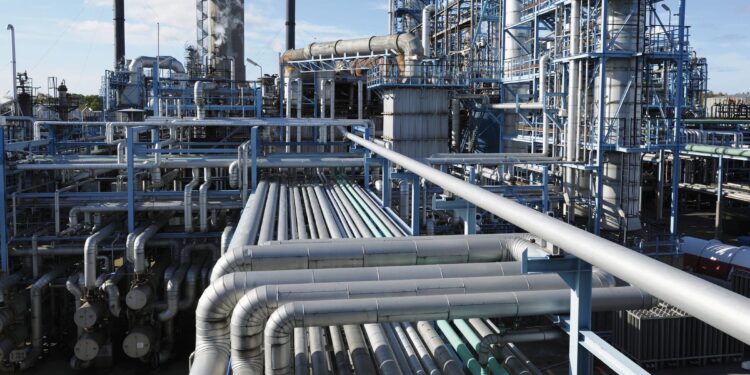On Thursday Boris Johnson advocated investment in nuclear power plants. But that is not what the media focused on. Rather, they focused on his comment that if you have an old kettle you can replace for £20, it could save you £10 a year. This clip, taken out of context, quickly did the rounds on social media.
Johnson is right, of course. The fact that Britain does not invest heavily in nuclear energy is a disgrace. Calder Hall, built in 1956, was the first nuclear power station in the world to produce electricity on a commercial basis. Yet since then, for no discernible reason, Britain has let its nuclear sector wane.
But we cannot blame the media for focusing on the kettle analogy. While nuclear power may be a viable solution for Britain in the long-run, in the short-run the British government has no better strategy than to tell the average person to upgrade their kettle. The reason is simple: there is not enough gas.
The plans being floated by the Eurocrats in Brussels highlight this perfectly. Frankly they are gobbledygook. They advocate introducing “a price limit for inframarginal electricity technologies”. What does that mean exactly? Basically nothing.
The proposals look like they were written by some poor economist who has nothing of interest to say and so reverts to spewing esoteric microeconomic language. All the jargon is there – from talk of the “inframarginal electricity price” to bluster about “greater legal certainty”. But in reality, only one statement in the entire leak has any meaning: “mandatory demand reduction for gas”. That is, rationing.
As I have already noted: there is not enough gas. Since there is not enough gas, people must use less. Either the market can ration this scarce gas by increasing its end price for consumers until they use less, or the state can ration the gas by diktat. There is no third alternative – no matter how many times you invoke the “inframarginal electricity price”.
Each approach has advantages and disadvantages. Rationing via increased prices will likely mean that the sectors of the economy that need the gas most will get it. But it also means that the poor will get hit disproportionately. Rationing via state diktat ensures general welfare. But it risks distorting the market and cutting off key industries.
At the end of the day, however, these are secondary considerations. The main point is that there is not enough gas. Gas rationing means blackouts and blackouts mean that economic activity will grind to a halt. There is a real chance that Europe’s economy will collapse this winter, and living standards will fall sharply. Britain is not exempt from this cruel fate.
The only real solution is to get more gas. To do that the Europeans must hold their noses and accept Russian demands to open the Nord Stream 2 pipeline. Doing so would overtly flout the sanctions and therefore be an enormous political victory for Russia. But the fact of the matter is that Russia wins either way.
If we do not flout the sanctions then we collapse, our living standards evaporate, and we likely undergo civil unrest and political upheaval. The people in the Kremlin will no doubt look West and laugh. If we break the sanctions, the whole anti-Russia campaign dissolves and we probably move back toward diplomatic normality. That is a big win for the Russians.
So, it is up to us – or rather our leaders. Do we want to stubbornly commit hara-kari to try to make a point – and meanwhile give the Russians a good laugh? Or do we sober up, assess the reality of the situation and hand Russia the victory that they will achieve regardless? Personally, I find ritual suicide distasteful, irrational and primitive.
Philip Pilkington is a macroeconomist and investment professional. You can follow him on Twitter here and subscribe to his Substack newsletter here.












To join in with the discussion please make a donation to The Daily Sceptic.
Profanity and abuse will be removed and may lead to a permanent ban.